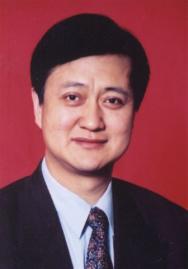
Prof. Li established the Energy-Minimization Multi-Scale (EMMS) model for gas-solid systems. The model has been extended to many different complex systems, and generalized into the EMMS paradigm of computation featuring the structural similarity between problem, modeling, software and hardware, which has been implemented by constructing a supercomputer with capacity of 1 Pflops and has been used widely in chemical and energy industries. He is also engaged research in clean coal technology. Currently, he is devoted to promoting the concept of mesoscience based on the EMMS principle of compromise in competition as an interdisciplinary science.
He is the vice president of International Council for Science (ICSU) for Scientific Planning and Review, the vice president of Association of Academies and Societies of Sciences in Asia (AASSA), the vice chairman of China Association of Science and Technology (CAST), the vice president of the Chemical Industry and Engineering Society of China (CIESC). He is editor-in-chief of Particuology and also sits on editorial committees or international advisory boards for several other international periodicals, such as Powder Technology, Advances in Chemical Engineering, Chemical Engineering Science, Reviews in Chemical Engineering, and Granular Matter. He holds memberships from CAS (Chinese Academy of Sciences), TWAS (The Academy of Sciences for the Developing World), SATW (Swiss Academy of Engineering), RAEng (The Royal Academy of Engineering) and ATSE (Australian Academy of Technological Sciences and Engineering).
He received a variety of prizes and honors, both national and international, including Particle Technology Forum Award from AIChE(2010), Medal Lecture Award from the Academy of Sciences for the Developing World (2012), Hongkong Qiushi Young Scientist Prize (1996), two National Natural Science Awards (1989, 1995) and Young Scientist Prize(1996) in China, a Technology Innovation Prize from CAS (2001).
